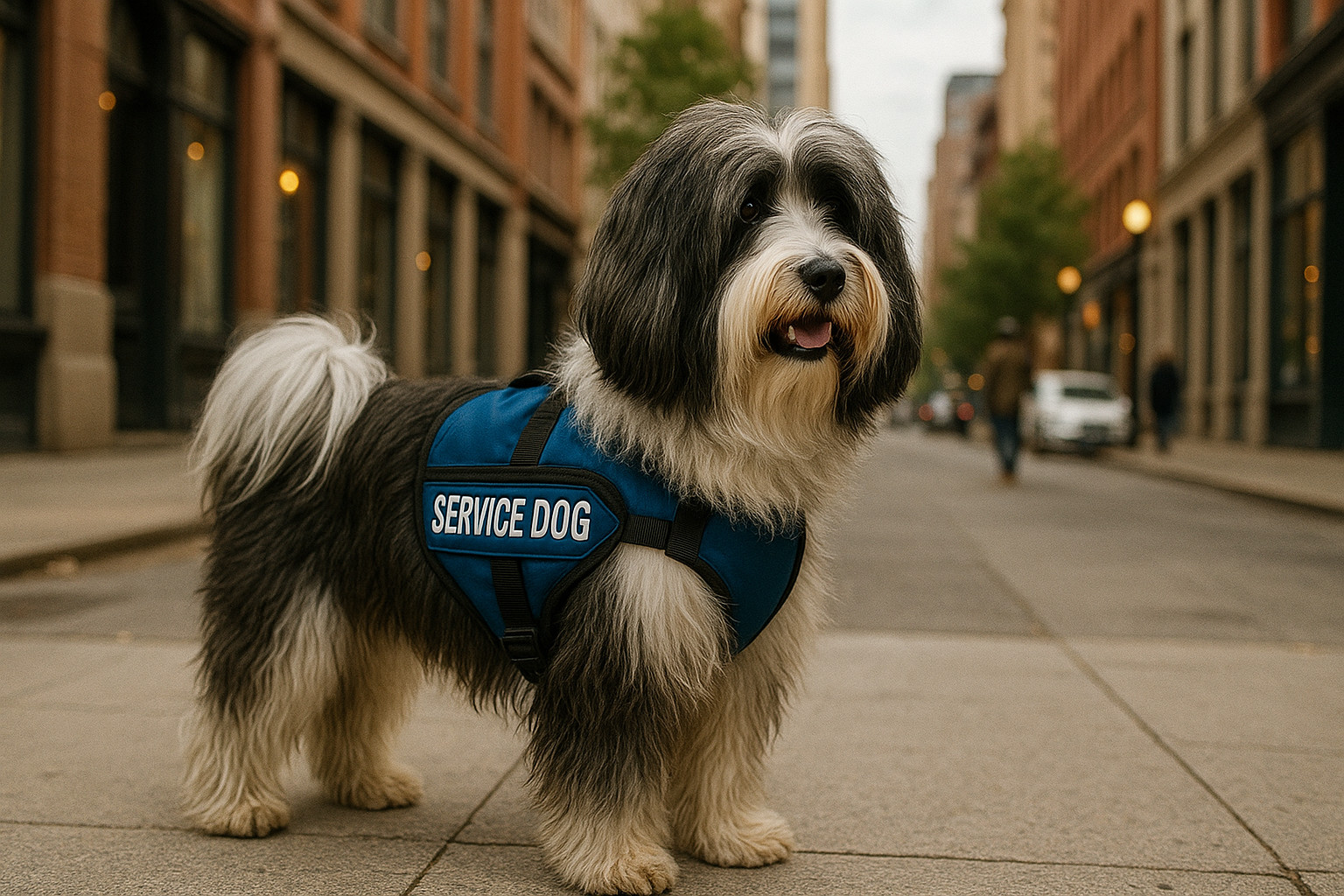Tibetan Terrier as a Service Dog

The Tibetan Terrier, though not as widely known or utilized as the Labrador Retriever or Golden Retriever in service dog roles, possesses several qualities that can make it a suitable candidate for specific service tasks. This article explores the Tibetan Terrier's characteristics, temperament, types of service work they excel in, health considerations, and training suitability, providing a comprehensive overview of their potential as service dogs.
Tibetan Terrier Overview
The Tibetan Terrier, often referred to as the "Holy Dog of Tibet," is not a true terrier but rather a member of the Non-Sporting Group. Known for their vibrant personality and affectionate nature, Tibetan Terriers were originally bred in monasteries in Tibet and served as companions, guard dogs, and herders. Despite their historical roles, their adaptability and intelligence lend themselves to various modern-day service roles.
Physical Characteristics
The Tibetan Terrier is a medium-sized dog, typically weighing between 18 to 30 pounds and standing about 14 to 17 inches tall at the shoulder. They have a distinctive appearance characterized by their long, flowing double coat, shaggy eyebrows, and tufted tail that curls over the back. This breed's physical characteristics can influence their suitability as service dogs in several ways.
- Size and Mobility: The Tibetan Terrier's moderate size makes them more suitable for certain service roles compared to larger breeds. They are agile and have good stamina, allowing them to navigate various environments and terrains.
- Coat and Grooming Needs: Their dense, weather-resistant double coat provides protection against harsh climates, which can be beneficial for outdoor service work. However, it requires regular grooming to prevent mats and tangles, which can be a consideration for handlers in terms of maintenance.
- Sensitivity: Their expressive eyes are hidden under a curtain of hair, but they exhibit strong sensory capabilities. This sensitivity can be advantageous in roles that require alertness and detection.
Temperament and Attitude
Tibetan Terriers are known for their affable nature, intelligence, and devotion to their families. These characteristics make them well-suited for certain service roles, though they also present unique challenges.
- Intelligence and Problem-Solving Skills: Tibetan Terriers are highly intelligent and possess acute problem-solving skills. This makes them adept at learning and performing complex tasks, essential for service work. However, their intelligence can also lead to boredom if not properly stimulated, which might result in undesirable behaviors.
- Independence vs. Trainability: While intelligent, Tibetan Terriers can be independent thinkers, a trait that can sometimes interfere with obedience training. Consistent training with positive reinforcement methods is crucial for this breed to reach its full potential as a service dog.
- Affection and Loyalty: These dogs form strong bonds with their human companions and are incredibly loyal, which enhances their ability to perform tasks that require close partnership. However, their attachment may also result in separation anxiety if left alone for extended periods.
Types of Service Work
Though not traditionally selected for service dog roles, Tibetan Terriers can excel in specific areas due to their distinct attributes.
- Emotional Support: Their affectionate nature and strong bond with humans make them ideal emotional support animals, providing companionship and comfort to those with mental health challenges.
- Therapy Work: Tibetan Terriers have a gentle and friendly demeanor, making them excellent candidates for therapy work in hospitals, schools, and care facilities where they can interact with various individuals offering comfort and calmness.
- Medical Alert Work: With proper training, Tibetan Terriers can be trained to alert their owners to medical issues such as seizures or changes in blood sugar levels due to their sensitivity and intelligence.
Health Considerations
The Tibetan Terrier is generally a healthy breed with a lifespan of 12 to 15 years, but like all breeds, they are prone to specific health conditions that can impact their service work.
- Genetic Disorders: Tibetan Terriers can be susceptible to inherited health issues such as hip dysplasia, progressive retinal atrophy (PRA), and lens luxation. Regular screening and preventative care are essential to ensure their well-being.
- Allergies and Sensitivity: Some Tibetan Terriers may have allergies, which could affect their comfort and ability to work. Ensuring a suitable environment and diet can help manage these issues.
- Regular Health Checks: Routine veterinary visits are crucial to maintaining their overall health and detecting potential problems early, ensuring they remain capable service partners.
Training and Suitability
Training a Tibetan Terrier as a service dog requires a tailored approach that recognizes their unique traits and potential challenges.
- Training Techniques: Positive reinforcement and patience are key when training Tibetan Terriers. They respond well to praise and rewards, making these techniques effective in fostering good behavior and task learning.
- Early Socialization: It's important to expose Tibetan Terriers to various environments, people, and other animals early in life to reduce any apprehension or fearfulness that might affect their service duties.
- Consistency and Structure: Given their independent nature, consistency in training and daily routines is vital. Providing structure helps them understand what is expected and reduces uncertainty.
Summary of Tibetan Terrier
In conclusion, the Tibetan Terrier, with its blend of intelligence, loyalty, and sensitivity, offers potential as a service dog in specific areas. However, their training, health care, and grooming require thoughtful consideration.
- Strengths:
- Affectionate and forms strong bonds
- Highly intelligent and capable of learning complex tasks
- Suitable for emotional support and therapy work
- Weaknesses:
- Independence can hinder obedience without consistent training
- Grooming needs can be demanding
- Potential for health issues that require proactive management
- Ideal Service Roles:
- Emotional Support Animal for companionship and comfort
- Therapy Dog in healthcare or educational settings
- Medical Alert Dog for specific health conditions
The decision to train a Tibetan Terrier as a service dog should weigh these strengths and weaknesses carefully while considering the handler's lifestyle and needs. For the right individual and environment, this breed can provide invaluable support and companionship.











